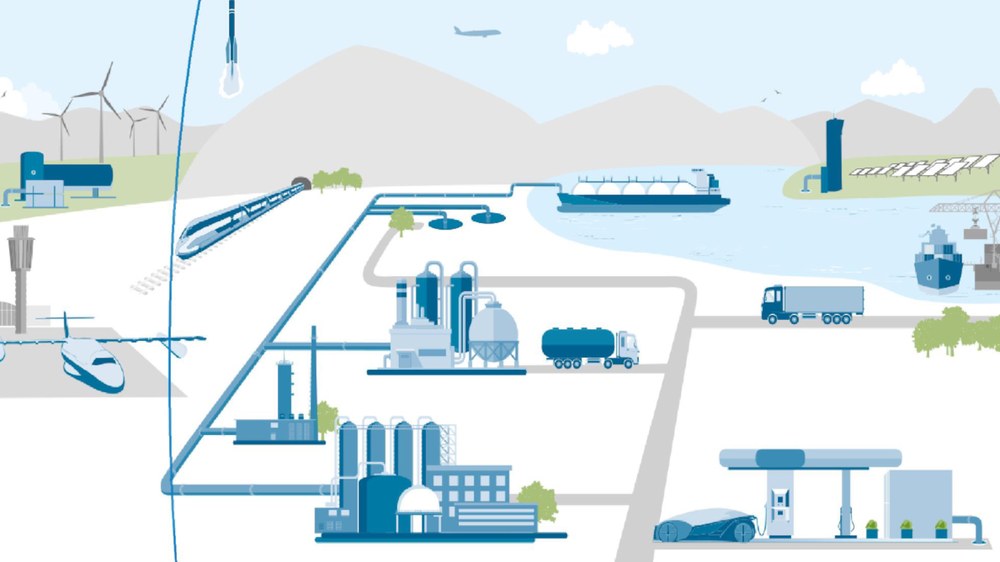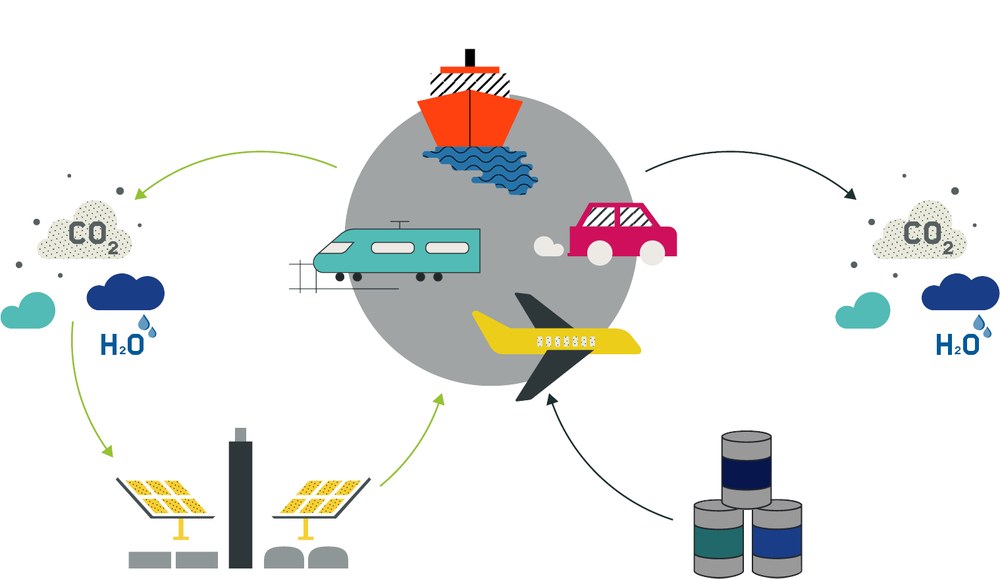The Institute of Future Fuels is investigating various processes for the production of fuels based on solar energy. Our multidisciplinary team evaluates the production processes from an economic, technical, ecological and social perspective. We are also looking at the logistics concepts that exist for the transport of the raw materials to the production sites and the transport of the energy sources produced to the consumers. Our aim is to identify the most promising production routes in order to support decision-making processes for the integration of solar fuel production into a global market.
Techno-economic evaluation
The aim of the techno-economic evaluation is to identify the economic potential of solar fuel production processes and the effects of key components. The aim is to identify levers that can improve competitiveness compared to processes based on fossil fuels and conventional electrolysis processes and thus drive forward the commercial implementation of solar processes. Conventional electrolysis processes produce hydrogen using electricity generated from fossil fuels or nuclear energy rather than from renewable energies such as solar or wind power.

Life Cycle Assessment
The life cycle assessment for alternative fuels is used to evaluate and compare the environmental impact of different fuels over their entire life cycle. It considers all phases of a fuel in its product life cycle, from raw material extraction and processing to production, distribution, use and disposal.
Life cycle assessments for alternative fuels are an important tool for promoting sustainable development, as they provide a comprehensive understanding of the environmental impact of fuels. Knowledge of the life cycle assessments of solar fuels makes it possible to optimise their production not only according to economic but also ecological criteria.
Socio-economic evaluation
The socio-economic assessment is another important element of a comprehensive assessment of the production processes of sustainable fuels. It aims to assess and understand the social and economic impacts associated with the production and use of fuels. The focus is particularly on the effects on the population, employment, economic development and social well-being.


